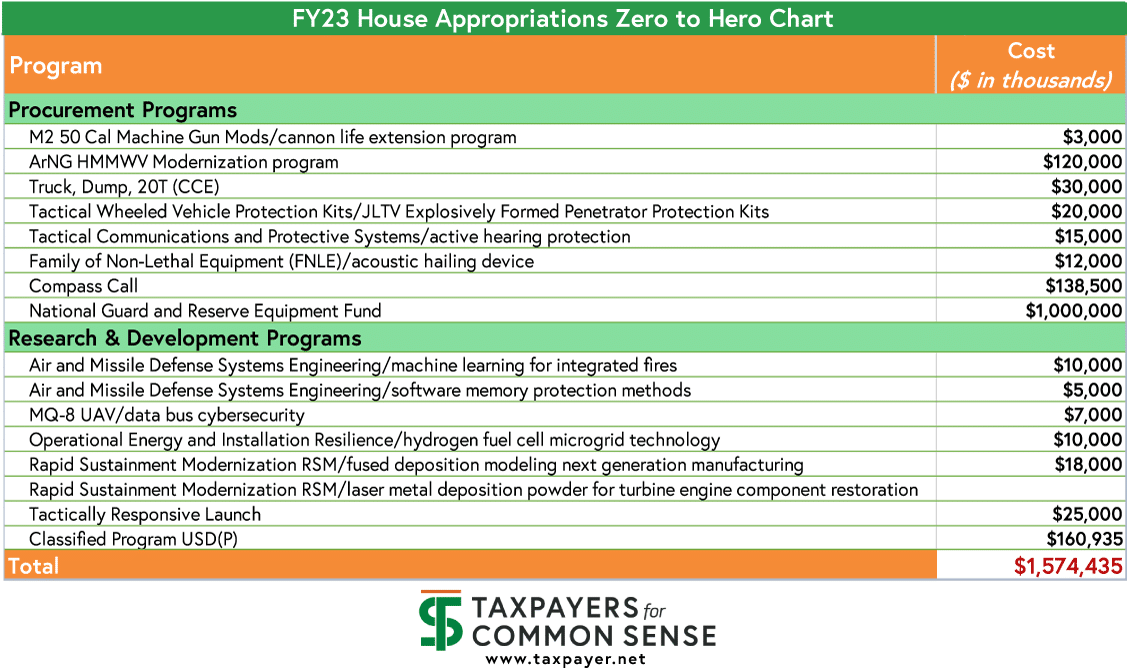The House Appropriations Committee version of the Fiscal Year 2023 (FY23) Pentagon spending bill is available for perusing. And, yeah, we’re just exactly the kind of numbers nerds that we do peruse it. This is our jam, and we turn up the music (don’t ask what genre) and start turning the pages of the committee report, looking for the details that others miss.
In the last few years, the subcommittees have begun publishing so-called Community Project Funding charts with each subcommittee bill and report. The House version of the one for the FY23 Pentagon spending bill is here. Now, we don’t want to diss our pals at the committee but, seriously, these paltry charts? They supposedly disclose any earmarking by Members of Congress, but don’t even come close to showing what lawmakers are actually adding to the bills.
Per usual, we have scoured the Procurement and Research, Development Test & Evaluation (RDT&E) titles for funding lines with a big, fat zero (0, zip, nada) in the President’s Budget Request column but a dollar figure in the “Committee Recommended” column. Yes, friends, it’s our much-anticipated Zero to Hero chart for the House Appropriations Committee/Subcommittee on Defense mark-up of the FY23 Defense Appropriations Bill.
Clocking in at $1.574 billion, the House Appropriators increased their total from last year which was $1.368 billion. Hey, inflation, yada yada…
A careful comparison of this list to the disclosed Community Project Funding chart will find no overlap. $1.574 billion in funding lines that were not requested by the president, but to which Congress is directing spending. Yet none of these are “Community Funded Project” requests? (As an aside, when earmark first became a bad word, Congress rebranded the process as Congressionally-Directed Spending…) So, take those Committee charts with a huge, blood-pressure-raising dose of salt.
But even our Zero to Hero chart doesn’t capture all the backdoor earmarks. This chart only enumerates when the overall funding line had a President’s Budget Request of zero. An even bigger story is where, particularly in RDT&E, the Appropriators lard up general funding lines with dozens of highly specific (suspiciously so) research projects. We’re doing our own brand of research on that right now, and we’ll be writing about it in the weeks to come.
We’re numbers nerds so you don’t have to be.











Get Social